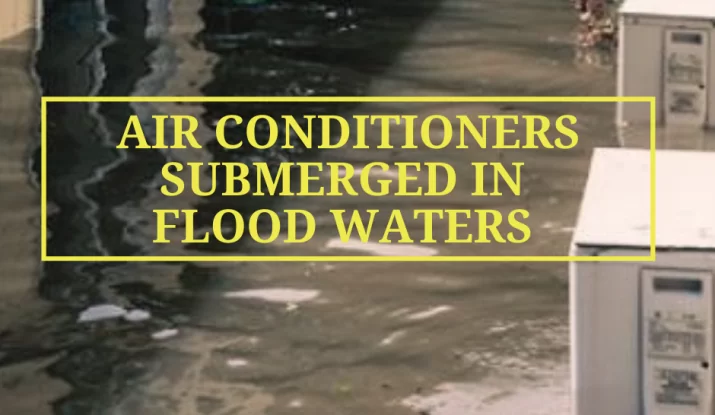
Don’t be tempted to turn your air con on if it has been submerged in recent flood waters.
Air conditioners are designed to withstand severe weather conditions. However, if the outdoor condenser unit (the system that sits outside your home) has been submerged in floodwater there is a high risk of internal damage. Some components can be replaced and or repaired along with anti-corrosion treatments to ensure your that your system is safe to use and continues to cool and heat you for years to come.
It may be very hot and humid as the clean-up continues but DO NOT turn your air conditioner on until a qualified refrigeration mechanic has inspected your system. In the meantime, there are a few things you can do to prevent the possibility of further damage to your system or even fire.
- Turn off power at the outdoor Isolator and/or Circuit Breaker located in your meter box.Failing to do so could cause further damage to the unit, as well as put you and your family in danger. Turn off power in every area of your home that’s been flooded until inspected and safe to turn on.
- Remove debris from around the air conditioner. Leaves, branches, and mud can clog the outdoor coils and fan motor. As flood waters recede it is safe to wash down your condenser unit and flush the coils as long as you isolated the power from your air conditioner and it remains off until inspected by a licensed air conditioning mechanic.
- Remove any coverings. If you had your outdoor condenser covered with a tarp to protect it from flood damage, remove it to allow the system to dry out.
- Check your insurance policy.Your insurance may cover the costs for repair or replacement.
- Do not touch any wires.If the floodwaters have subsided, and you can see visible wires or damage, DO NOT touch any of the wires yourself. Immediately call a licensed electrician or air conditioning mechanic to inspect your system.
- Leave the air conditioner turned off. Even if your air conditioner looks like it’s fully dry do not turn it on. It may still have wet electronic components inside, which if energised may cause additional damage to your unit, electrocution, or a fire in your home.
- Do Not Disconnect or Discard Flood Damaged Outdoor Condensers As the clean-up continues around your home or business do not disconnect outdoor air conditioner condensing units. Electricity and high-pressure gas lines Kill. Disconnection and removal of air conditioners should only be done by qualified persons. It is illegal to release air conditioning gas into the environment and the law in Australia requires the refrigerant/gas to be reclaimed by an ARCtick licensed person. There are large fines for any person who knowingly releases refrigerant gases into the environment.If you are unsure, stay safe and call a professional.

